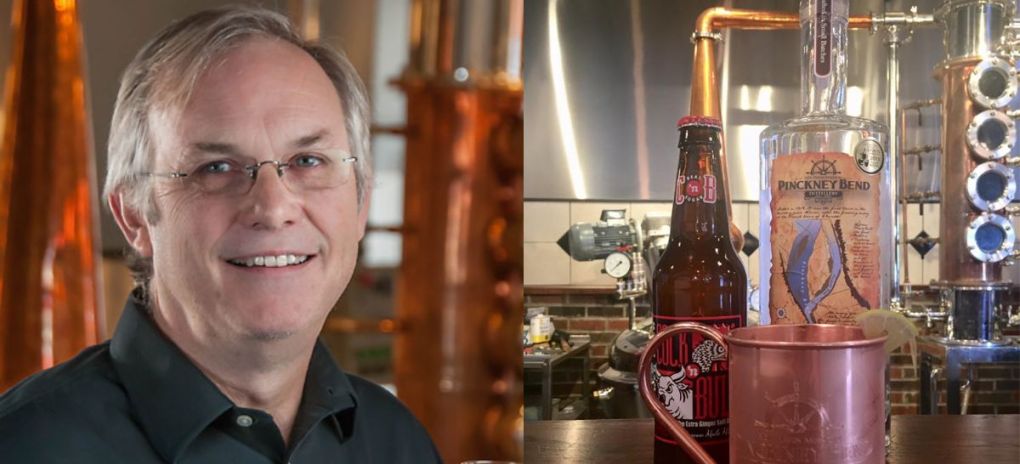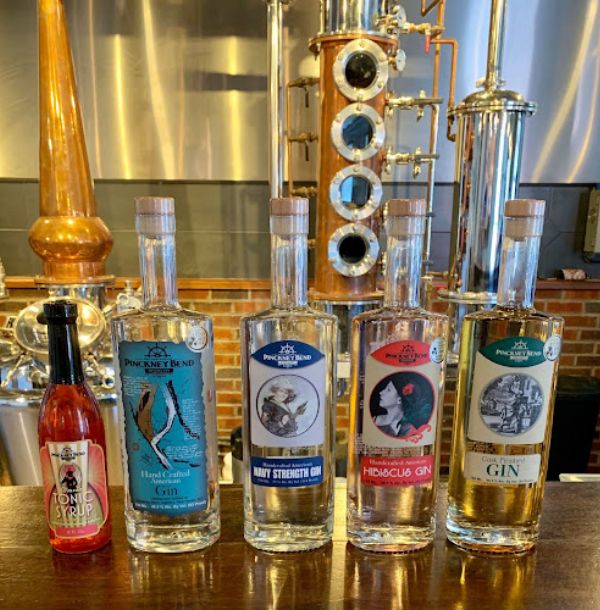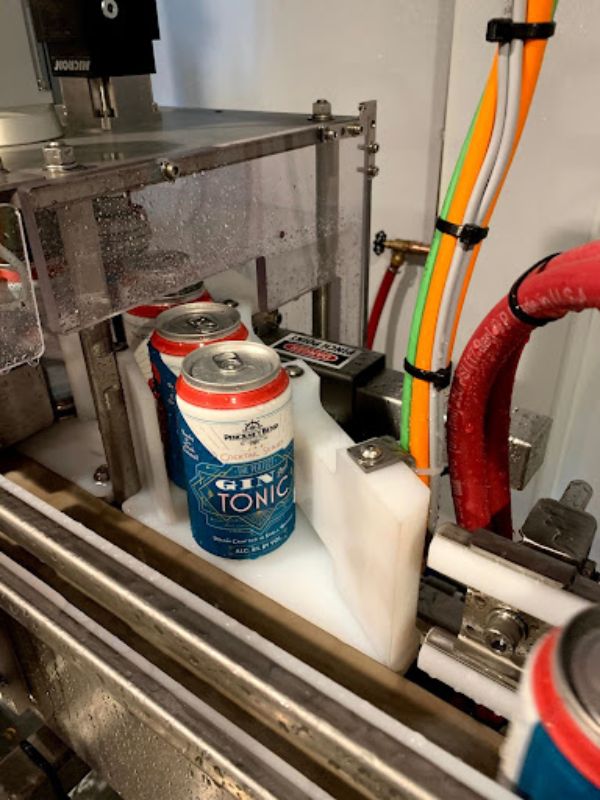
12/01/2023 Distilling is more than the act of watching a still run. I have always said brewers make great distillers. They know the flavor and the spirit's flavor is the flavor you are distilling.
Tell us a little about your background and journey into distilling
When your education is in Biochemistry and Microbiology, but your job is all business, you look for hobbies that are challenging. Homebrewing and Charcuterie filled the bill. Both use cultures to take simple ingredients and make something special. (and you get beer and sausage...) While I was brewing beer, there was a 5-gallon pot still that was a decoration at the family farm, and after a ton of research, I fired it up to make a nice malt whiskey. Realizing the scope of starting a distillery, I enlisted two partners to join the journey. We started with Gin since the whiskey took time to age. Receiving a Gold Medal from the San Francisco World Spirits Competition for our first product helped us retain a knowledgeable and experienced distributor.
Your current role and what does your day look like?
Having designed the formulation and process used to make each product, the key now is consistency. My role is to hire staff that can efficiently use and manage that process. Educating the staff to understand not only what they are doing, but why they are doing it will give them the ability to see problems and take action before they occur.

Pinckney Bend Distillery in New Haven, Missouri. Tom Anderson is the founding partner.
What inspired you to become a distiller?
Initially, it was all hobby distilling, until the realization that what I was producing was really good! Educating myself about the industry with groups like the American Distilling Institute was most helpful and showed me a way into the distilling world.
What are some of the most essential skills for a distiller?
Distilling is more than the act of watching a still run. I have always said brewers make great distillers. They know the flavor and the flavor of the spirit is the flavor of what you are distilling. The other skill is realizing how each distillate will be consumed. Working with bartenders to create spirits that make great cocktails is the key to a great product.
How do you think a distiller can help in driving marketing and sales personally?
Get out there and do educational sessions. Customers are always looking to learn how to use spirits and create great cocktails. Work with bartenders to make cocktail menus that are interesting and creative. Do tastings and spirit-related workshops. We do a "Gin Lab" where we have each ingredient distilled separately and allow you to create a custom gin by blending these ingredients. Once you have identified and tasted each gin ingredient, you can make something that is to your taste, and you will never look at it in the same way again. That creates a consumer that is knowledgeable and will always look at your product in a positive light. Remember, the last person to touch your product before it is served is your bartender. Work with them and give them what they need to make better cocktails. No one knows more about cocktails than the bartender that serves them.
Define a good distiller
Distillers have above-average attention to detail. You always need to be looking for changes in the process and deal with them. Distillers are constantly looking for more information.
What is the hardest part of a distiller's job?
Distilling consists of hours of watching a still run, requiring attention now and then. You need the juggler's ability to keep "three balls in the air" all the time. Always look at each step in the process and keep consistency and quality in mind. The other half of the distiller's job is record keeping. Writing down everything and keeping accurate records is key.
What's your elevator pitch to a bartender when pitching your brand
Want your customers to come back because your cocktails are better? Use Pinckney Bend Gin and our custom Tonic Syrup to make the best gin and tonic around. Oh, our Open Pollinated Heirloom Corn Whiskey is pretty good too.

What are the current challenges the spirits industry is facing according to you?
The explosion of micro-distilleries is partly due to the ease of getting a license. Many of these folks just don't understand the process and are making really bad spirits. The industry needs to educate folks to get the entire industry to make better products. Also needed is the understanding that this is a business. The key here is the understanding that "You don't make money MAKING Gin (or Whiskey). You make money SELLING Gin (or Whiskey) This is a business and like any other business, you must turn a profit.
What skill or topic you are learning currently and why?
Understanding the barrel aging process is difficult and generally misunderstood. Working with Coopers and testing labs we are looking into what happens in the barrel, and as importantly, what happens once it comes out of the barrel. Flavor degradation from UV exposure, temperature, and other factors greatly affect spirits of all types. Creating gins that don't change flavor from the first pour until the entire bottle is consumed is difficult but attainable. Whiskey too will change with exposure to air and light. Much research is needed to understand and minimize these problems.
What is your idea of a good life?
An understanding of family and the time to spend with them. Travel and exposure to new and different things provide spice in life.
[[relatedPurchasesItems-31]]
Which is your go-to drink and what is the perfect setting you enjoy it in?
The perfect Gin and Tonic is at the top of my list, but the beauty of a Cask-aged Gin is really something - a little spice from the gin, the vanilla, and Oakey, toffee, caramel barrel notes create a unique spirit. Then there is whiskey, a great Open Pollinated Heirloom Whiskey and a good cigar is hard to beat. You can be on the balcony of a high-rise, or with friends around a campfire, friends and great spirits make the world go around.
The perfect Gin and Tonic is at the top of my list, but the beauty of a Cask-aged Gin is really something - a little spice from the gin, the Vanilla, and Oakey, toffee, caramel barrel notes create a unique spirit. Then there is whiskey, a great Open Pollinated Heirloom Whiskey and a good cigar is hard to beat. You can be on the balcony of a high-rise, or with friends around a campfire, friends and great spirits make the world go around.
What are your favourite 2-3 distilling or spirits books?
Marcel Thompson's "Still Magic" and "Gin Ventures" are a must-read for anyone looking to get into distilling or those who want to up their game. Other favorites include "The Drunken Botanist" by Amy Stewart looking at cocktail ingredients, and "Gin Galore" by Sean Murphy looking at the gin of Scotland. Yes, Scotland makes gin.



